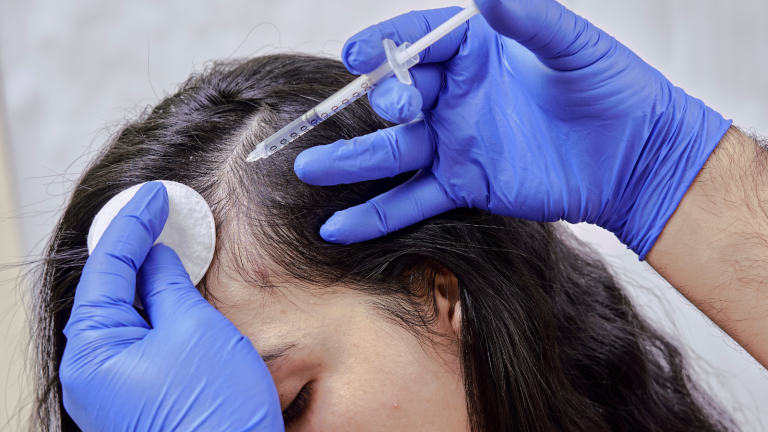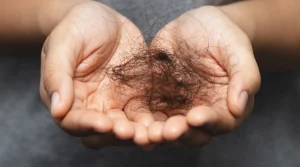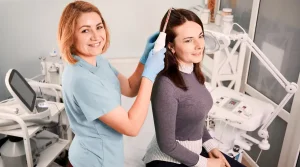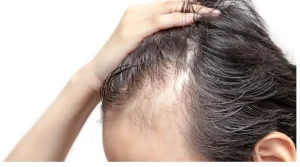Loss of hair may be a very private and distressing experience for both men and women. While some find relief with over-the-counter treatments, many require prescription medications to halt thinning and encourage hair regrowth. By understanding the causes, signs, and treatment options, When it comes to the health of your hair, you can make educated judgments.
Key Takeaways:
- Prescription medications for hair loss are often necessary when over-the-counter options are ineffective or when hair loss is more advanced.
- Common prescription treatments like finasteride and minoxidil target the hormonal or circulatory causes There are several reasons why people lose their hair, including heredity medications, hormonal imbalances, and stress.
- If medications are the cause, adjusting your treatment plan with a healthcare provider can help mitigate hair loss.
What Is Prescription Medication for Hair Loss?
Prescription hair loss medications are specially formulated to treat more persistent or severe forms of hair loss. Among the drugs that are most frequently prescribed are:
- Finasteride (Propecia): Used primarily for male pattern baldness, this medication works by reducing dihydrotestosterone (DHT), a hormone that shrinks hair follicles. Lowering DHT levels can slow hair loss and promote regrowth.
- Minoxidil (Rogaine): Although available over-the-counter in lower doses, stronger prescription forms of minoxidil may be prescribed for stubborn hair loss. In order to increase blood flow to hair follicles, minoxidil works. helping to thicken hair and stimulate growth.
- Spironolactone: Often prescribed to women, this medication lowers androgen levels, which can cause hair loss due to hormonal imbalances, such as in polycystic ovary syndrome (PCOS).
- Dutasteride: Similar to finasteride, dutasteride reduces DHT levels but is often used when finasteride is ineffective. It’s commonly prescribed for male pattern baldness.
Reclaim Your Confidence with Expert Hair Loss Treatment
Don’t let hair loss control your life. Explore safe, non-surgical treatments in Bergen County. Schedule a consultation with a trusted specialist to discuss personalized solutions.
What Are the Benefits of Prescription Hair Loss Treatments?
Prescription hair loss medications offer several benefits, especially for those with more significant hair thinning or baldness:
1. More Potent Than Over-the-Counter Options: Prescription treatments often contain stronger formulations, making them more effective for advanced hair loss.
2. Targeted Action: Many of these medications address specific causes, like hormone imbalances or reduced blood circulation to the scalp.
3. Prevents Further Hair Loss: By reducing DHT or promoting follicle health, prescription treatments help slow or stop hair loss progression.
4. Promotes Hair Regrowth: Consistent use can result in noticeable hair regrowth or thickening.
5. Restores Confidence: Improved hair appearance can enhance self-esteem, helping to reduce the emotional toll of hair loss.
Signs, Causes, and Treatments of Hair Loss
Common Signs of Hair Loss:
- Gradual Thinning: Thinning at the crown is a common sign of male pattern baldness, while women may experience more diffuse thinning.
- Receding Hairline: A receding hairline is typical in men with male pattern baldness, particularly around the forehead or temples.
- Patchy Bald Spots: Circular bald patches may indicate alopecia areata, an autoimmune disorder.
- Sudden Hair Loss: Stress or illness can lead to temporary hair shedding, known as telogen effluvium.
- Full-Body Hair Loss: Treatments like chemotherapy may cause hair loss across the entire body.
Causes of Hair Loss:
- Genetics: Androgenic alopecia, or pattern baldness, is hereditary and driven by hormonal changes that become more noticeable with age.
- Hormonal Imbalances: Fluctuating hormone levels during pregnancy, childbirth, menopause, or thyroid disorders can contribute to hair loss.
- Medical Conditions: Autoimmune diseases, infections, and conditions like lupus can result in hair loss.
- Medication Side Effects: Hair thinning can be a side effect of medications like chemotherapy, blood pressure drugs, antidepressants, and birth control pills.
- Stress and Lifestyle: Chronic stress, poor nutrition, and harmful hair care practices can exacerbate hair loss.
Available Treatments for Hair Loss:
- Topical Treatments: Prescription-strength minoxidil promotes hair regrowth by stimulating the hair follicles.
- Oral Medications: Finasteride and spironolactone target hormonal causes of hair loss, effectively treating both men and women.
- Platelet-Rich Plasma (PRP): PRP therapy involves injecting plasma from your blood into the scalp to encourage hair regrowth.
- Hair Transplants: Surgical hair transplant procedures restore hair in areas with significant thinning or balding.
Empower Yourself with Knowledge! Click Here to Access Our
Could Your Medication Be Causing Hair Loss?
Certain medications may be responsible for hair loss. Common culprits include:
- Chemotherapy Drugs: These target rapidly dividing cells, including hair follicles, causing widespread hair loss.
- Antidepressants: Some SSRIs and tricyclic antidepressants list hair loss as a side effect.
- Blood Pressure Medications: Beta-blockers and ACE inhibitors can lead to hair thinning in some individuals.
- Hormonal Medications: Hormone replacement therapies and birth control pills may cause hair shedding due to hormonal shifts.
If you suspect your medication is contributing to hair loss, consult your healthcare provider. In many cases, changing medications or adjusting dosages can help resolve the issue.
Conclusion
Hair loss can be challenging, but prescription medications provide effective solutions for those seeking more advanced treatment. Whether due to genetics, hormonal changes, ordrug side effects, figuring out the underlying cause of your The first step in identifying hair loss the right solution. With early intervention and the right prescription treatment—such as finasteride or minoxidil—you can take control of your hair health, prevent further loss, and potentially see regrowth. Speak with a physician to learn more about your choices and restore your confidence.





